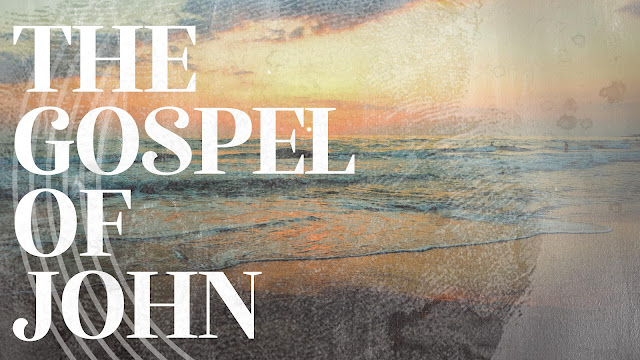From there I take the white board notes and put them in a Google Doc that is shared with the team. Since we just finished the Ten Commandments I want to share all those notes with you!
Here are the notes that came from our team planning. It's a way to show you what goes into the planning of a series:
June 20 | Exodus 20:1-3
Sermon Title- None Before Me
Big Idea- We put Him first because of who He is and what He’s done
Ideas-
Philippians 3:19
Isaiah 44
Mark 10:17-27
Teach about other gods that people worship
Tie into previous sermon on how we can tell what matters in our lives
Israel was called to be set apart (not set aside). Teach on Santification?
God was concerned about getting the Egypt out of them. -Dave Roberts
God’s brought us all out of something. We need to help fill in that blank. -Becky Shipe
In the rich young ruler the commandment was put to the test
God gave us the commandments in a desire to provide and protect us
Illustration- What struggle do you put in front of God?
Core Value- We put God first
I- Items
D- Duty
O- Others
L- Longings
Songs:
Egypt
Your great name
June 27 | Exodus 20:4-6
Sermon Title- Don’t Reduce God
Big Idea- Out thoughts about God determines our worship of God
Ideas-
Exodus 32- Aaron and the golden calf
Psalm 115
John 4- the Woman at the well
“What comes into our minds when we think about God is the most important thing about us. ... Worship is pure or base as the worshiper entertains high or low thoughts of God. - Tozer
Our image of God will have everything to do with our worship of God. -Dave Roberts
Westminster Shorter Catechism- the chief goal of man is to worship God and enjoy Him forever
The heart is an idol factory
God is a jealous God. We have a negative connotation of jealousy in our culture
Jealousy and love aren’t in opposition to each other
How does idol worship affect those around us: Family, spouse, kids, relatives, work?
Our concept of God determines our life before God
Left to our own devices we will make anything into an idol. -Dave Roberts
It’s so important we get our understanding of God correct
Songs:
Egypt
Your great name
The Blessing
July 04 | Exodus 20:7 (Blaze McEntee)
Sermon Title- His Holy Name
Big Idea- Reverence for God’s name will lead us to represent Him well
Ideas-
Mark 5- Demons flee at the name of Jesus
The tribe of Korah didn’t understand the power of God’s holy name
When Israel moved the ark from the Philistines the man who reached out his hand to stabilize the ark lost his life.
Stories of taking God’s name in vain
“The name Austin was being misrepresented.”
We don’t understand how different God really is
YWHW
Songs:
Break every chain
Your great name
No other name
July 11 | Exodus 20:8-11
Sermon Title- Living Rested
Big Idea- God knows I need rest to be my best
Ideas-
Deuteronomy 5:15
Jesus is Lord of the Sabbath Matthew 12:1–8, Mark 2:23–28 and Luke 6:1–5
When Israel were slaves they didn’t have days off, there was no rest for them
Explain the Jewish perspective on time- a new day started when the sun set
We wear busy as a badge of honor in our culture
Research on rest, naps, sleep, and neuroplasticity
Animals at the zoo get days off where they are not on display
CF takes Saturday off and still makes more than other restaurants
The sabbath is a time for restoration and recreation
Michael Yankoski’s book on Sababth enjoyment
Lance Witt’s story about waking up in the middle of the night
God didn’t have to rest but modeled rest for us--we are not following Satan’s example
We are creating a rhythm of rest as a church body (no events on Saturday)
I take days off and am not available, I shut down email, I have a vacation coming up
Pastor who received a call about a failing marriage on Saturday. He asked a few questions to learn that the marriage had been failing for five years. She waited to meet later that week
We rest to follow God’s example of rest. God knew we needed to rest
Songs:
Egypt
Your great name
The Blessing
July 18 | Exodus 20:12
Sermon Title- Powerful Parents
Big Idea- When you rightly honor your parents, all your relationships get better
Ideas-
Colossians 3:20
Luke 15
Ruth 1
John 19:25
Malachai 1:6
Honor parents who aren’t honorable
Is it only to a set geographical location?
What does it mean to prosper?
People who have trouble of thinking of God as a Father
Songs:
The blessing
Break Every Chain
Make Room
July 25 | Exodus 20:13
Mike Lovato
August 1 | Exodus 20:14
Bert Alcorn
August 8 | Exodus 20:15
Sermon Title- Caught red handed
Big Idea- Do not take what rightfully belongs to others
Ideas-
Malachi 3:6-10
Acts 5
1 Kings 21
Deuteronomy 24:7
Micah 6:8
Story of stealing when I was 5 years old
Story on Twitter of woman who stole hand sanitizer from Bath and Body works
$970 or more is stealing CA
Moving boundary stones to gain more power
Employer taking wages, an employee stealing hours
Aladdin steals to eat
Movie example- Liar Liar with Jim Carey
We write it down because we need to remember it
Songs:
Clean Hands
Egypt
Jirah
No longer slaves
August 15 | Exodus 20:16
Sermon Title- Truth Teller
Big Idea- The Bible teaches us how to tell the truth
Ideas-
Acts 5
Matthew 26:57
Mark 14:53
Luke 10:36
Colossians 3:9-10
1 Kings 21
John 8:44
Matthew 5:33
Can’t be killed on the testimony of one witness
US Judicial System- tell the whole truth, and nothing but the truth
Examples of “white lies”- the check is in the mail
Movies and TV shows that promote lying
More than just morals
We believe untruths and share them as truths
Have so much integrity that people believe what you say
Teach on how to apologize for lying
Exaggeration- how to work on truth telling
Making excuses
Using ‘Always’ and ‘Never’ statements
Songs:
The blessing
Break Every Chain
Make Room
August 22 | Exodus 20:17
Sermon Title- Facing Covetousness
Big Idea- Coveting is an expression of our distrust of Jesus
Ideas-
Romans 7
Joshua 7
2 Samuel 11
Psalm 51
James 1:13
Ephesians 5:5
Colossians 3:5
Proverbs 4:23
Philippians 4:11-12
Coveting starts with the physician
Story of Christopher Duntsch (wanting to be a doctor and rich)
This i the internal one
Covetousness is the motivation for many of sins
Covetousness is hidden
We covet thinking it will make us complete
“Trust the Lord who is provider” -Ryan LaFata
Why do I covet knowing the greatness of the Lord?
“Coveting is a sinful belief that things will make me happy.” -Dave Roberts
Gratitude and thanksgiving combat covetousness
“This isn’t a uniquely American problem but we’ve perfected it.” Dave Roberts
Songs:
Waymaker



















